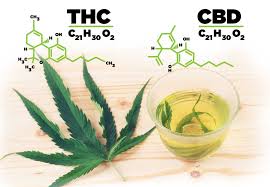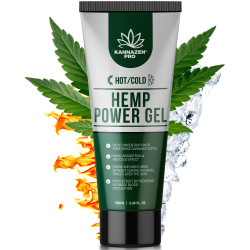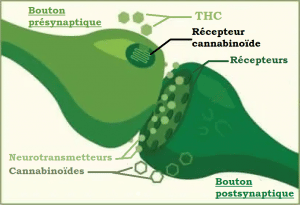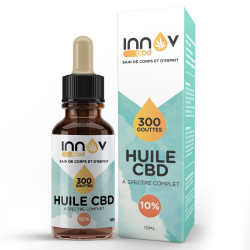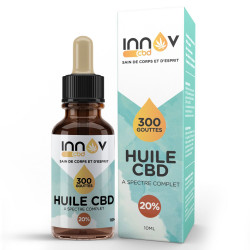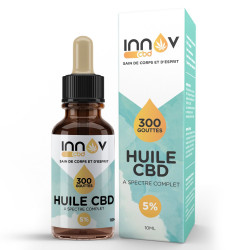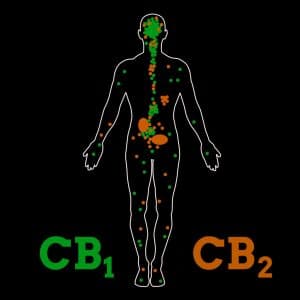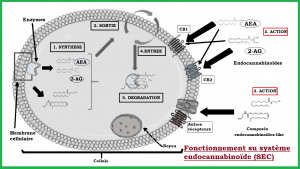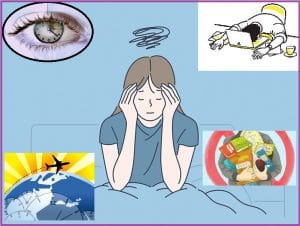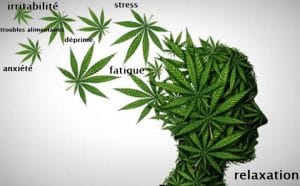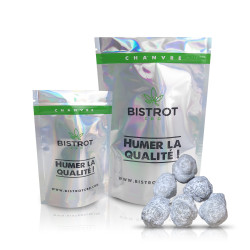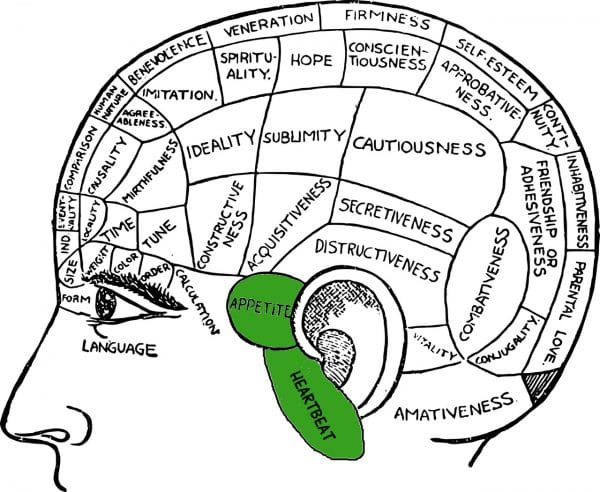
THC and CBD are naturally occurring molecules in cannabis. This plant, so controversial around the world, is only talked about. We hear all kinds of things about it: harmful effects on health, illegality and the parallel economy that results from it. But also, benefits, marketing and legality. In fact, hemp is a bit of both and that’s why it’s easy to get lost.
The effects of cannabis are indeed very different depending on: the respective concentrations of its active molecules and therefore, the variety of hemp in question. However, its consumption, known since the dawn of time, is not decreasing. This allows a relevant questioning of its effects on the organism. Such a craze could not continue without good reason! If the “trip” that THC provides to its consumers has made it famous, the explosion of sales of products containing only CBD (oils, cosmetics ..) necessarily induces that there are beneficial effects in the consumption of this substance!
The active substances (CBD and THC) of cannabis
Cannabis is very often assimilated as a drug with side effects that lead to behavioral disorders. This analogy is the most widely reported. But, in reality, many people distinguish hemp from cannabis! However, it is the same plant. Hemp is also a politically correct term in everyday language:
- “textile hemp
- “hemp wool” for building insulation
But then, why does cannabis get such bad press when its synonym is completely tolerated?
Like all plants, cannabis has active substances with their own effects. If we count more than a hundred of them, two distinct cannabinoid molecules are found in high concentrations: delta-9-tetrahydrocannabinol (THC) and cannabidiol (CBD).
The effects of THC vs CBD
The most known, THC is responsible for the bad reputation that cannabis has. Its euphoric and soaring effects are accompanied by side effects. In the long term, they can lead to disorders such as:
- paranoia, anxiety, schizophrenia and addiction.
At the time “t” of its intake, an alteration in behavior is observed. It affects both the mood and
appetite
. It is these “disturbances” that the consumer is looking for in a purpose, beforehand, completely recreational.
The second star molecule is: CBD. This substance is much less controversial despite some confusion. It is found today in many products such as :
- oil, balms, flowers, resins, capsules, candies and other food supplements.
It has a relaxing effect and is not included in the list of
narcotic products forbidden in France
. Still under study, CBD would indeed have no side effects and would not lead to addiction like its cousin THC.
Effects of cannabinoids on the endocannabinoid system (ECS)
There are several types of cannabinoids. In order to better understand the effect of these molecules on our body, it is important to know them and therefore to distinguish them.
Humans have their own cannabinoids called endocannabinoids (“endo” meaning “own”) as opposed to cannabinoids such as THC and CBD from cannabis which are called phytocannabinoids (“phyto” meaning “from a plant”).
A short biology course to better understand :
- To trigger a cell’s response to a stimulus, information must be transmitted to the brain. This message is carried from one nerve cell (neuron) to another by molecules called neurotransmitters. The latter bind to receptors that are more or less specific to them and present on the cell membrane. Once the information is transmitted, a form of response from the cells is induced.
Our body has its own endocannabinoid system. It includes cannabinoid receptors (CB1 and CB2) and the endogenous molecules linked to them. It is this system that is responsible for the action of cannabis on the body.
Endocannabinoids and phytocannabinoids (CBD and THC): cause and effect links?
There are 2 endocannabinoids:
- Anandamide also called “the happiness hormone” because it is the one that participates in the origin of the good mood
- The 2-arachidonylglycerol which works primarily with the CB2 receptor
They are the ones who ensure the osmosis between the body and the mind.
The effect and action of phytocannabinoids that interest us in comparison to endocannabinoids are CBD and THC :
- THC: With its anandamide-like properties, THC binds primarily to CB1 receptors. These receptors are located in the brain and nerve endings. As a result, they manage many of the body’s functions. The binding of THC to CB1 therefore alters the physical and affects emotions, appetite, memory, coordination, movement, sleep and thinking.
- CBD CBD has no real affinity for endocannabinoid receptors. It does not fixate on them. On the other hand, it has an action on a very specific enzyme called FAAH (fatty acid amid hydrolase). It regulates the concentration of anandamide by degrading it. In the presence of CBD, FAAH is impaired in its function. This discomfort allows the concentration of anandamide to increase significantly. Thus, a relaxing effect is felt by the consumer without inducing the “stone” effect of THC. Indeed, CBD does not block the CB2 receptors. It even opposes its psychotropic properties on CB1 receptors.
The effects of CBD: its benefits and virtues on health
Many testimonies praise the merits of CBD. They sometimes refer to it as a natural therapeutic treatment with no side effects. But, the active molecule of cannabis CBD is still under study. To date, it is not included in the list of authorized drugs as such.
- CBD is legal, full of virtues but does not officially cure.
The effects of CBD on pain
Many scientific studies do not rule out the potential risk of disorders associated with CBD intake due to its origin (cannabis). However, in the majority of cases, they show significant improvements on :
- stress, pain, depression and
insomnia
They link these benefits to the action of CBD. The latter mimics and reinforces the effects of endocannabinoids.
Some studies go further and consider CBD as a great ally for patients with :
- intestinal disorders (
Crohn’s disease
) - skin diseases (psoriasis, acne)
- neurological alterations (Alzheimer, Parkinson)
- neuropsychiatric diseases (autism)
If the tests and scientific research on the positive effects of CBD on health are confirmed, its use will then be able to compete :
- antidepressants, anti-inflammatory, anxiolytic, antiepileptic or sebo-static drugs.
At very high concentrations (much higher than those found in
CBD oil
of the market), cannabidiol could have an important effect on cancer patients by acting on cancer cells. CBD would decrease their proliferation and slow down the development of certain tumors.
To conclude…
It is still impossible to scientifically affirm that CBD :
- is a medical treatment for diseases such as cancer
- will not cause long-term side effects
However, it is impossible to deny some of its health benefits. At the top of the list,
its relaxing effect
which, even if it were the only one, seems the most important!
FAQ: CBD effects
[sp_easyaccordion id=”11461″]

